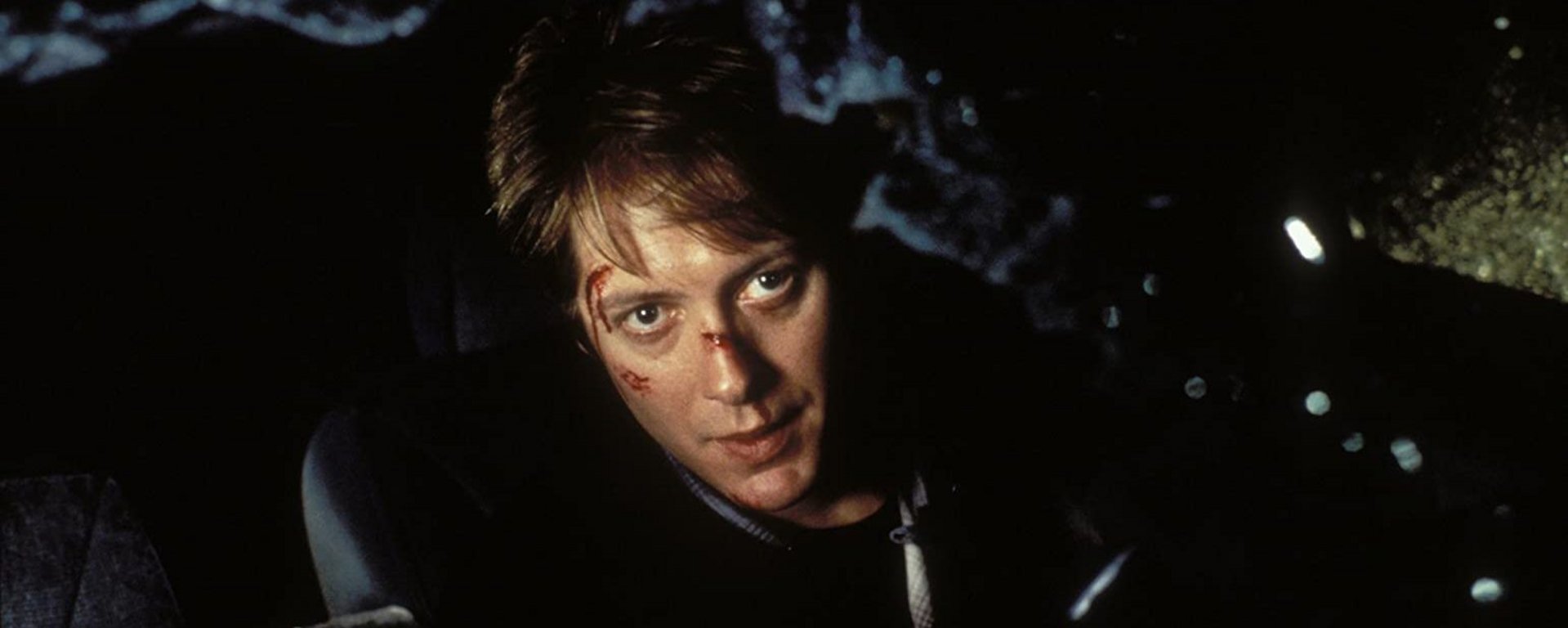David Cronenberg's film of J G Ballard's controversial 1973 novel had already aroused comment in the press before it was submitted to the BBFC. Its screening at the 1996 Cannes Film Festival had provoked the Evening Standard's film critic, the late Alexander Walker, to describe the film as 'beyond the bounds of depravity'. On the day of its UK premiere at the London Film Festival (where it was shown without a BBFC certificate but with the special permission of Westminster Council) the front page of the Daily Mail demanded 'Ban This Car Crash Sex Film'. This was to mark the beginning of an intensive and orchestrated campaign against the film by the Daily Mail and Evening Standard.
It was against this background that the BBFC was asked to view Crash in October 1996. The film tells the story of a couple who overcome the emptiness and tedium of their lives by joining a cult-like group who associate sexual excitement with car crashes. The sexual content of the film was unremarkable in classification terms and the violence was no stronger than could be found in many other features (comprising car crashes rather than one-on-one personal violence). However, it was the unusual combination of sexual excitement with car crashes (and their attendant injuries) that appeared to provoke outrage amongst some. It was clear to the BBFC from the outset - as it had also been clear to readers of Ballard's original novel - that the film was not intended to be taken literally. Rather it attempted to examine a number of issues in a metaphorical manner, such as the link between sex and risk, the increasing importance of technology in modern lives and the manner in which people whose lives are empty seek a connection to life through increasing and dangerous levels of thrill-seeking. The activities of the characters - and the characters themselves - were simply too bizarre for emulation to be likely. Furthermore, the film presented the crashes and even the sex scenes in a cool, detatched fashion that was unlikely to excite or attract audiences.
Although the BBFC was content that the film was acceptable for viewing by adults, the increasing barrage of charges against the film - that it was obscene, dangerous, likely to incite car crashes, offensive to the disabled - led the BBFC to seek expert advice.
A QC was engaged to give a legal opinion as to whether the film was likely to be obscene within the meaning of the Obscene Publications Act. He concluded that the film did not offend against this law. A psychologist was asked to advise as to whether the film was likely to be dangerous or incite copycat behaviour. He concluded that, in itself, the film would have no such effect. Finally, the film was screened to a group of eleven disabled people, because it had also been suggested that the film's portrayal of some of its disabled or injured characters enaged in sexual activity could be offensive. Although the invited group did not generally enjoy the film, they concluded that its depiction of disabled people as being able to be both sexually attractive and active, (despite rather than because of their injuries), was generally a positive thing.
With the combined weight of legal and psychological advice, the opinions of disabled viewers, and the unanimous view of the BBFC examiners that the film was neither harmful nor dangerous for adult audiences, Crash was classified at 18 uncut on 18 March 1997. Predictably, the BBFC's careful and considered decision was not welcomed by the Daily Mail or Evening Standard although, when the film finally opened in May 1997, it provoked little public comment. The press campaign against the BBFC's decision became increasingly vicious between the time of the film's classification and its release, resorting to publishing the photographs and personal details of the BBFC's examiners and ridiculing them as unrepresentative 'liberals' who had refused to ban an offensive and dangerous film. However, the evidence did not support any of the claims still being made.
Perhaps in the light of the continuing media onslaught against the film, Westminster Council - who had previously given permission for the film to be premiered in their area as part of the 1996 London Film Festival - parted company with the BBFC at this point, insisting that cuts should now be made to the film before it was shown in the West End. The distributors declined to make cuts solely for screenings in Westminster and the film was therefore effectively banned from screens in the West End, including Leicester Square. However, cinema goers could easily see the film in neighbouring Camden where the council allowed the film to play uncut with its BBFC certificate.
Later in 1997, the film was submitted for a video certificate and, after careful consideration, it was agreed that the reasons for permitting the film at the cinema were equally valid on video. The video version was therefore also rated 18 without cuts in March 1998 and the film has subsequently been shown on national television.
